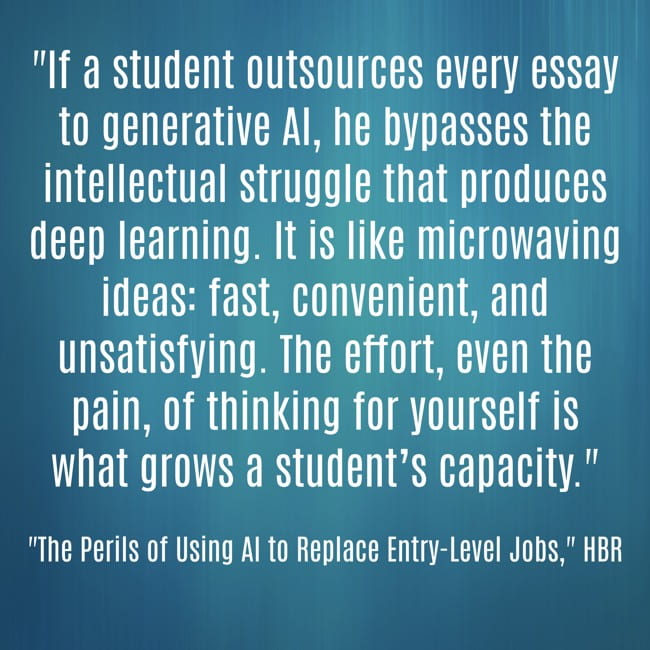
This Article On The Dangers Of Outsourcing Entry Level Work To AI Can Be Applied To Schools, Too
The Perils of Using AI to Replace Entry-Level Jobs is a really interesting article in the Harvard Business Review.
So many companies are hiring far fewer entry level new employees and outsourcing work to AI, but the writer points out the shortcomings of that policy, including the facts that future leaders come from those positions, and that innovation comes from the “bottom,” too.
The article recommends that instead of eliminating those jobs, they need to be “redesigned,” including:
Junior roles must no longer be defined by the repetitive, automatable tasks that AI can do better and faster. Instead, they should be designed to expose people to the why behind the work.
AI is only useful when paired with critical thinking. Productivity gains are meaningless if they come at the expense of professional judgment.
The default use of AI is substitution: Let the machine do the work and cut headcount. A smarter approach is to redesign workflows so AI handles rote execution while humans focus on framing the problems, asking better questions, and building relationships.
Perhaps the most important principle is that entry-level work should be designed not just to get things done but also to develop people. Early exposure to pressure, ambiguity, and even failure is how professionals acquire resilience and judgment.
The column offers specific examples for each of them.
The authors mention education once, and I’ve highlighted their comment in the above text box.
I think there can be lots of parallels to what they they’re saying about business in how schools should consider responding to AI – for both students and teachers.
If students let AI do lots of their work for them, they won’t have gone through the process of developing fundamental thinking skills needed for long-term success. And I think that teachers who do the same for lesson planning or grading can make a similar mistake (though I think AI assessing learning game results is fine).
Source link



